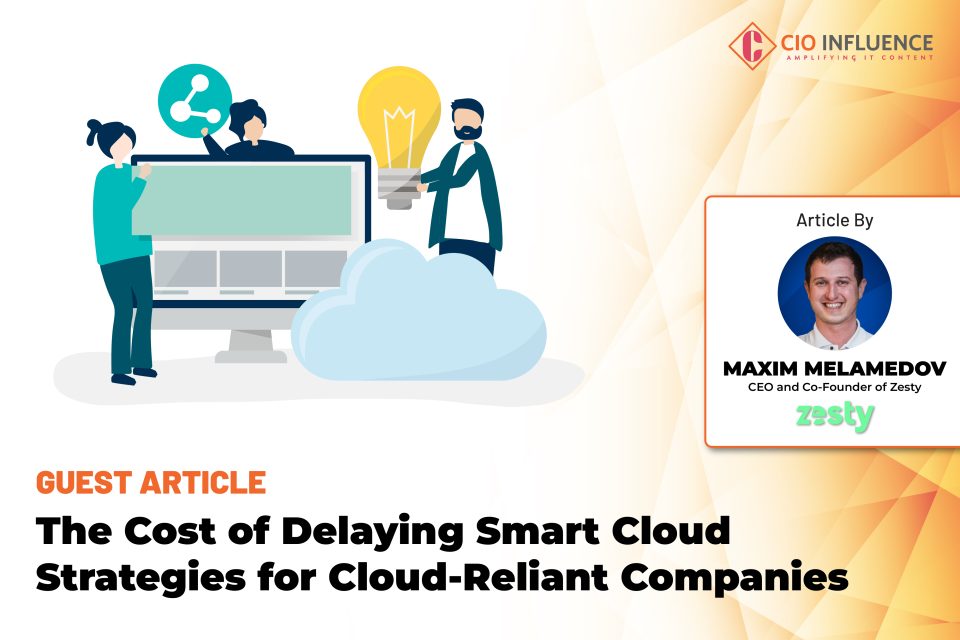Effective financial management is at the core of Financial Operations (FinOps), promoting responsible spending when it comes to cloud computing, including efficient use and scaling of cloud resources. When integrated into cloud management processes, FinOps frameworks help teams understand where and how cloud resources are being utilized, identify areas of waste, and make better-informed spending decisions.
Companies that adopt such FinOps practices see quantifiable benefits. Consider that last year, according to the FinOps Foundation, organizations with established FinOps practices around cloud management saved an average of 20-30% on their cloud spending by optimizing resource usage and eliminating waste. Alternatively, by delaying such FinOps adoption, companies often scramble to maintain control over suboptimal cloud conditions.
As cloud optimization tools continue to proliferate across industries, businesses can no longer afford to delay the adoption of such crucial solutions.
Also Read: CIO Influence Interview with Kevin Campbell, CEO at Syniti
The Consequences of Delay
Delayed implementation not only hampers financial ROI, but also hinders organizations’ ability to sustain growth, adapt and innovate, and prepare for crises.
First and foremost are the financial consequences – namely uncontrolled cloud spending. Inefficiently managed resource allocation can quickly result in spiraling costs, and without clear financial oversight and efficient management of cloud expenses, companies will miss opportunities to allocate funds for their most impactful innovative projects and growth initiatives.
Laggard adoption of cloud-related FinOps tools also inhibits financial visibility. Without it, companies struggle to understand how their money is being spent, obstructing effective decision-making.
Additionally, the longer such FinOps implementation is delayed, the more ingrained an organization’s existing, sub-optimal practices become. Over time, workflow habits, however inefficient, can become so deep-rooted that trying to overhaul them causes massive disruptions, eating up time and resources. Even if such FinOps adoption eventually occurs, the longer companies go without them, the harder it becomes to realign existing systems and processes with more efficient cloud strategies. This slows down important innovation projects and makes long-standing inefficiencies harder to overcome.
As companies scale, inefficient cloud management practices also tend to accumulate, creating silos and fragmenting the ownership of resources, hampering critical visibility and increasing the risk of mismanagement in optimization efforts. Some companies may even find themselves stuck with vendor-specific cloud solutions or locked into outdated pricing models, which makes switching to a smarter cloud management approach even more challenging. The longer a company waits, the more tangled the web becomes, making it harder to put effective cost-management strategies in place.
Enhancing Cloud Management
As reliance on cloud services grows – especially in volatile markets – early adopters of smart cloud management strategies often gain a competitive edge by establishing efficient processes ahead of their peers and aligning cloud expenditures with strategic business objectives. As such, the earlier a company starts its FinOps journey, the more confidently it can ensure positive, sustainable financial outcomes in its cloud operations.
FinOps practices like tracking waste and automating cloud operations also help reduce energy consumption by optimizing resource utilization and improving efficiency. By automating tasks such as resource scheduling and scaling, companies consistently stay abreast of both financial and other operational goals, reduce the risk of human error, and prevent bottlenecks and setbacks amid rapid cloud infrastructure changes.
Clear ownership of resources is also a foundational aspect of FinOps, establishing which specific individuals or teams are responsible for managing and optimizing cloud usage. As such, proactive automation initiatives allow for smoother transitions between tasks and projects, reducing the learning curve for new processes and enhancing ownership. This allows teams to focus on more strategic initiatives rather than manual processes, giving them greater control and accountability in their workflows.
These types of FinOps strategies also give companies a head start on business growth by maintaining financial discipline and resource optimization.
Also Read: Top Cloud Management Tools of 2024
Overcoming Adoption Challenges
For such FinOps practices to be effectively deployed, organizations must monitor the evolving cloud technology landscape and understand the complexities of cloud billing structures.
To bolster resource management and informed financial decision-making, companies must invest in tools and training that provide clear insights into cloud cost data. Cloud cost management tools like AWS Cost Explorer and Azure Cost Management offer detailed insights into spending patterns, helping organizations identify trends, anomalies, and areas for optimization.
Successful FinOps implementation also requires a company-wide cultural shift highlighting cost efficiency and sustainability as core values. This shift involves educating teams about the importance of resource optimization and aligning financial goals. As such, strengthening communication between IT, finance, and other departments is crucial for FinOps success.
Teams must learn to speak each other’s “languages” – IT must understand financial constraints, while finance teams need to appreciate the technical aspects of cloud management. This mutual understanding fosters collaboration and drives better outcomes.
Regular meetings, supported by visual dashboards and reports, can help teams track their spending, align budgetary goals, and avoid siloes between departments.
Also Read: The Cloud + Remote Access Platforms = Your Key for Securing Generative AI
Don’t Miss the Fin-Opportunity
For modern businesses using cloud services, it’s never too late to start benefiting from smarter FinOps practices. But sooner is always better.
Early adoption will optimize financial performance and support organizational goals by reducing waste and improving resource efficiency. By prioritizing such FinOps strategies, companies can enhance their cloud ROI, drive sustainable growth, and contribute to a more operationally efficient IT culture.
[To share your insights with us as part of editorial or sponsored content, please write to psen@itechseries.com]


